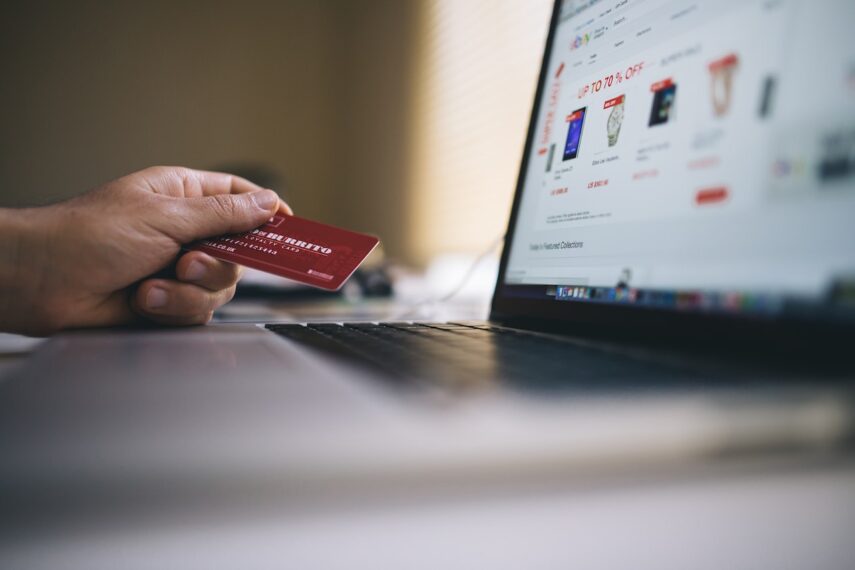If you are like many people, you are probably shopping more online than ever before, thanks to technology. Technology has made life much easier, such that you can purchase almost anything you want without leaving the comfort of your home. Unfortunately, it does not always bring good news. Identity theft and scams are major concerns for those shopping online. Now that the holiday season is almost approaching, you need to be more vigilant while shopping online so you don’t become a victim.
Cybersecurity Basics

- Use a Password Manager: A password manager is a great way to keep track of all of your passwords and make it easier to remember them all. This way, you won’t have to remember a complex string of characters for every account you have. There are many different password managers available, so it is important to find one that meets your needs and fits your personal style.
- Keep Your Browser Up-To-Date: Always update your browser software as soon as new security patches are released. This will help protect you against potential cyberattacks and malware infections. Make sure to delete old cookies and history files as well, so that malicious actors cannot track your movements across the web.
- Be Aware of Phishing scams: Phishing scams are one of the most common forms of cybersecurity threats online. These scams involve fake emails that look like they come from reputable sources (like banks or retailers), but actually, contain malicious content that can infect your computer. Be especially careful about clicking on links in emails that you don’t trust – always verify the source before clicking anything!
- Protect Your Personal Information: When shopping online, never enter your personal information (like credit card numbers or social security numbers) into any form fields on websites unless you are absolutely certain that the site is legitimate. Also, be careful about clicking on links in emails that offer you the chance to “join” a mailing list or make a purchase. Many of these scams will ask you to provide your personal information in order to join the mailing list or make a purchase.
- Be Vigilant about Social Media: Cybersecurity threats can also come from social media platforms like Facebook and Twitter. Be especially careful about sharing personal information (like your birthdate or address) on these sites, and make sure to use caution when following links sent through social media posts.
Online Safety Shopping Strategies
Before you start shopping online, ensure that you aren’t putting yourself at risk. Even though you might not have to worry about robbers in cyberspace, you still need to safeguard your financial information. Apply these simple online shopping safety strategies to stay safe.
Stick With Reputable Sites and Companies

When shopping online, it’s best to shop at a store you know and trust. Ensure you bookmark your favorite shopping platforms to access them quickly and safely. Try to avoid typing the URL of the e-commerce site into your browser’s address bar. Why? That’s because a small typo might land you on a fake website that appears just like the original one. When you make a “purchase” on a fake site, you will unknowingly share your credit card number and other personal info with scammers.
Know the Brand and Its Reputation
If your e-retailer has a physical store in your area, online shopping will be easy. You can always visit their outlet and ask for help if you encounter a problem. Also, if you know others who have had positive shopping experiences with the e-store, you can be sure it’s genuine.
Suppose the shopping site doesn’t sound familiar. You can still shop there, but you need to take more precautions. Do your own background check by visiting websites dedicated to reviewing online stores. If there is no review for an e-store or people don’t favor the site, avoid it.
Keep Your Software and Apps Updated

You might not know this, but software and app updates can protect you. Yes, you heard that right! Whether it is your shopping app or your OS, developers keep updating them to ensure the platforms are more secure. Since hackers keep devising new methods to steal info, shopping sites should also get more innovative. So, don’t postpone downloading an update just because it will hamper what you are doing. The next time you receive an update notification, just get it over with!
Connect to a Secure Wi-Fi Network
Free Wi-Fi can be ok if you merely need to find the meaning of “encrypted”. However, it’s not suitable for shopping online. Public Wi-Fi attracts a lot of hackers who want to steal your information. Most public internet zones aren’t protected and don’t require passwords. Anyone and everyone can connect to them. So, this isn’t a connection on which you should log into your PayPal or use your credit card.
Consider Adding More Security Features/Tools

Even if you are a wise internet user and have created strong passwords, you can still become a victim of fraud while shopping online. So, consider including additional security measures, such as using a tool to encrypt information traveling to and from your device. This way, you can minimize the likelihood of becoming a victim of theft or fraud while shopping online. You can buy private proxies from IPRoyal.com to ensure your data is safe and anonymize your traffic.
Shop From a Secure Platform
While shopping online, you might have to share personal information like your credit card number and home address with a retailer. Ensure your info is protected by shopping on secure platforms only. But how do you know a site is safe? Before you share your credit card details, there are two things to consider. First, make sure the web address contains an “https://” prefix. In this case, the “s” indicates that the site is secure and your data will remain private. The other thing to look for is a closed lock symbol in a site’s address bar.
Conclusion
Shopping online is fun and a great way to save time. Armed with the information above, you can now protect your identity and money. Now, you only need to worry about getting the best deals. Happy shopping!
Related Posts:
- How to Play in Online Casinos Safely in Japan - 2024 Guide
- 5 Tips For Using Digital Vouchers & Coupons While…
- 6 Reasons you Need to Start Using Coupons for Online…
- Shed Removal Services in New Jersey: A Complete…
- Strategies to Boost Your Online Presence and Outshine Rivals
- Top 10 Tips to Safely Drive Your Motorcycle to Work







